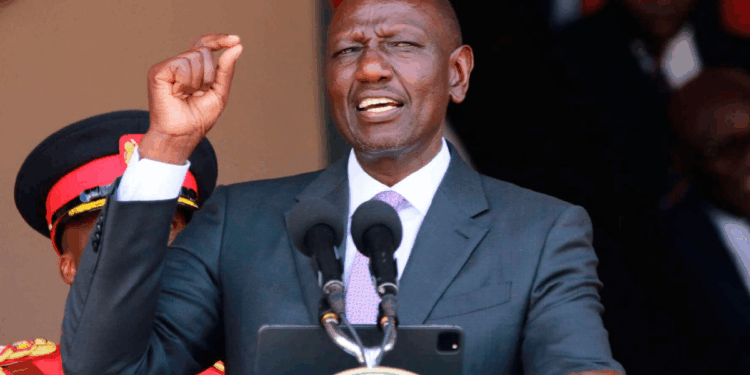Kenya’s ambitious nationwide job creation project, aimed at addressing the country’s persistent youth unemployment crisis, is facing significant setbacks due to a Sh7.6 billion funding shortfall, according to recent reports.
The initiative, known as the Nyota Project, was designed to empower over 1 million young Kenyans by providing entrepreneurial opportunities and job placements across 1,450 wards.
However, with only Sh1.3 billion allocated in the current financial year, the government’s plans are in jeopardy, sparking widespread scrutiny and raising concerns about the future of youth empowerment in Kenya.
The Nyota Project, a flagship initiative under President William Ruto’s Bottom-Up Economic Transformation Agenda (BETA), was launched to tackle Kenya’s unemployment crisis, particularly among the youth, who make up over 60% of the population.
The program promised to provide funding, training, and resources to foster entrepreneurship and create sustainable job opportunities.
However, delays in rolling out the initiative and a lack of sufficient funding have left many disillusioned.
Vihiga Women Rep Beatrice Adagala voiced concerns, stating that the youth are growing increasingly frustrated with the stalled progress.
“If you do not roll out this project, you will have set a matchbox for Gen Z to ignite this country,” warned Mathare MP Antony Alouch, highlighting the potential for unrest if the government fails to deliver.
Principal Secretary Susan Mangeni, appearing before a parliamentary committee, revealed that the Treasury allocated just Sh1.26 billion for the project, far below the required amount.
This shortfall has raised questions about the government’s planning and financial management. Gichugu MP Robert Gichimu criticised the decision to advertise the project without securing adequate funding, calling it a mismanagement of public expectations.
The funding gap also threatens the project’s viability, with fears it could suffer the same fate as the Kenya Youth Employment Opportunities Project (Keyop), where unutilised funds were returned to the World Bank due to implementation challenges.
The funding shortfall comes at a time when Kenya is grappling with broader economic challenges, including a Sh253 billion revenue shortfall reported by the National Treasury for the 2024/25 financial year.
The Kenya Revenue Authority (KRA) collected Sh2.26 trillion by April 2025, missing its target of Sh2.51 trillion, further straining government initiatives like the Nyota Project.
This fiscal strain has amplified public frustration, particularly among the youth, who feel betrayed by unfulfilled promises of job creation and economic empowerment.
Social media platforms have been abuzz with criticism of the government’s handling of the job creation initiative. Youth reflect growing discontent, with users highlighting the Sh7.6 billion deficit and questioning the government’s commitment to youth empowerment.
“President Ruto’s NYOTA youth empowerment dream in jeopardy,” one user posted, echoing the sentiments of many who see the shortfall as a sign of deeper systemic issues.
The Kenya Institute for Public Policy Research and Analysis (KIPPRA) has also flagged job creation as a critical concern, noting that despite economic growth, the pace and quality of employment opportunities remain inadequate.
With 800,000 young Kenyans entering the job market annually, the government faces mounting pressure to deliver on its promises.
As protests marking the anniversary of the 2024 anti-government demonstrations continue, the funding shortfall for the Nyota Project risks further fueling public discontent.
Analysts warn that failure to address the unemployment crisis could lead to renewed unrest, with youth-led movements demanding accountability and tangible results.
The government now faces the challenge of securing additional funding from the Treasury or external partners to salvage the initiative and restore public trust.
In response to the scrutiny, the government has emphasized its commitment to exploring innovative solutions, such as embracing the digital economy to create jobs.
Recent moves to integrate Bitcoin, stablecoins, and blockchain technology signal a shift toward leveraging technology for economic transformation.















